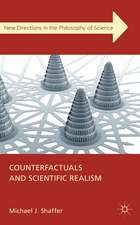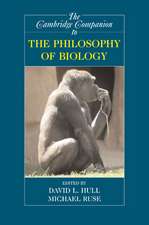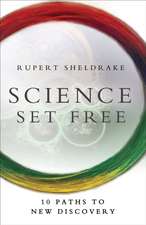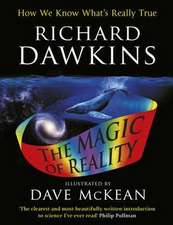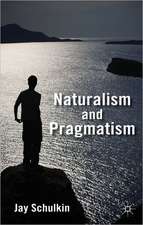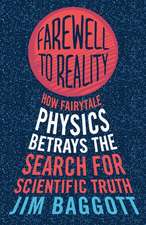Cultural Evolution
Autor Kate Distinen Limba Engleză Paperback – 30 mai 2010
| Toate formatele și edițiile | Preț | Express |
|---|---|---|
| Paperback (1) | 261.29 lei 43-57 zile | |
| Cambridge University Press – 30 mai 2010 | 261.29 lei 43-57 zile | |
| Hardback (1) | 554.68 lei 43-57 zile | |
| Cambridge University Press – 30 mai 2010 | 554.68 lei 43-57 zile |
Preț: 261.29 lei
Nou
Puncte Express: 392
Preț estimativ în valută:
49.100€ • 52.33$ • 41.61£
49.100€ • 52.33$ • 41.61£
Carte tipărită la comandă
Livrare economică 31 martie-14 aprilie
Preluare comenzi: 021 569.72.76
Specificații
ISBN-13: 9780521189712
ISBN-10: 0521189713
Pagini: 282
Ilustrații: 3 b/w illus.
Dimensiuni: 155 x 228 x 19 mm
Greutate: 0.4 kg
Editura: Cambridge University Press
Colecția Cambridge University Press
Locul publicării:New York, United States
ISBN-10: 0521189713
Pagini: 282
Ilustrații: 3 b/w illus.
Dimensiuni: 155 x 228 x 19 mm
Greutate: 0.4 kg
Editura: Cambridge University Press
Colecția Cambridge University Press
Locul publicării:New York, United States
Cuprins
1. Introduction: small consequences of one general law; Part I. The Inheritance of Cultural Information: 2. What is information?; 3. How is information inherited?; Part II. The Inheritance of Cultural Information: Natural Language: 4. Natural language and culture: the biological building blocks; 5. How did natural language evolve?; 6. Language, thought, and culture; Part III. In Inheritance of Cultural Information: Artefactual Language: 7. How did artefactual language evolve?; 8. Artefactual language, representation and culture; 9. Money: an artefactual language; 10. Money: the explanatory power of artefactual languages; Part III. The Receivers of Cultural Information: 11. How does human diversity affect cultural evolution?; Part IV. The Expression of Cultural Information: 12. Aspects of the cultural ecology; 13. Patterns of cultural taxonomy; 14. Conclusion: a representational understanding of cultural evolution; Appendix: what about memetics?
Recenzii
'Why cultural evolution is cumulative in humans, but not in other species, remains a significant puzzle. Distin argues that our brain's ability to represent information to itself (so-called metarepresentation) enabled the accelerating increases in cultural complexity that are so distinctive of our species. She suggests that metarepresentation, first manifest in syntactic language, was later augmented by the storage and transmission of information through artifacts. Further, as stores of information, artifacts have significant advantages - they are stable, durable, and almost infinite in capacity - features that make it possible for cultural information to increase and diversify. Her approach brings fresh insights and novel perspectives to this difficult problem at the center of human evolution.' Robert Aunger, London School of Hygiene and Tropical Medicine
'In The Selfish Meme, Kate Distin brought conceptual clarity to a term that had been overly complicated. The advantages of the term 'meme' had been obscured - sometimes by the term's champions, but more often by those with pretheoretical agendas that made them hostile to the aspects of cognition (human irrationality) that the term highlighted. In The Selfish Meme, Distin restored the term's usefulness. In Cultural Evolution, Distin has a larger goal in mind - nothing less than a full-blown theory of the development of human knowledge. Given the Promethean goal of the book, it is remarkable how much the volume succeeds. Using various tools of modern cognitive science - from knowledge of the structure of language to the notion of metarepresentation - Distin gives us an expansive framework for understanding cultural evolution.' Keith E. Stanovich, University of Toronto, author of What Intelligence Tests Miss and The Robot's Rebellion: Finding Meaning in the Age of Darwin
'In The Selfish Meme, Kate Distin brought conceptual clarity to a term that had been overly complicated. The advantages of the term 'meme' had been obscured - sometimes by the term's champions, but more often by those with pretheoretical agendas that made them hostile to the aspects of cognition (human irrationality) that the term highlighted. In The Selfish Meme, Distin restored the term's usefulness. In Cultural Evolution, Distin has a larger goal in mind - nothing less than a full-blown theory of the development of human knowledge. Given the Promethean goal of the book, it is remarkable how much the volume succeeds. Using various tools of modern cognitive science - from knowledge of the structure of language to the notion of metarepresentation - Distin gives us an expansive framework for understanding cultural evolution.' Keith E. Stanovich, University of Toronto, author of What Intelligence Tests Miss and The Robot's Rebellion: Finding Meaning in the Age of Darwin
Notă biografică
Descriere
Expounds a theory of cultural evolution and shows how it can help us to understand the development of human culture.


